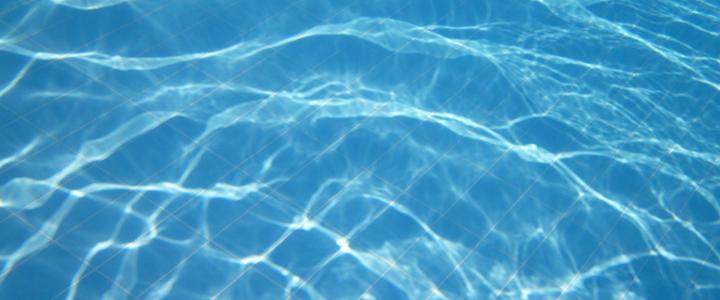
June 2022: No Diving and No Skipping out on Proper Pool Treatment
Summer is officially here, and many pool owners across New Hampshire have probably already opened up their backyard oasis for the coming months. Unfortunately, this isn't as simple as pulling back the cover and jumping in. Maintaining a clean and safe pool can be a complex process and hiring a pool maintenance company can be too costly for many. A lot of pool owners will handle the process on their own, which includes the application of numerous chemicals and tests to the pool water before the family can get in.
Many pool chemicals intended to clarify and disinfect can also be harmful to swimmers and the environment if not handled properly.
Traditional pool chemicals include chlorine (liquid or solid), calcium chloride, cyanuric acid, sodium carbonate and many others. These chemicals must be used in the proper amounts; using too little could promote the growth of algae and bacteria, but using too much could cause skin irritation, rashes and other side effects harmful to humans. Additionally, they must be handled carefully because many of these treatments, such as chlorine, can be detrimental to the environment if they are spilled or introduced to the local ecosystem in any way.
To lower the risk of environmental harm and for the health of individuals who may be sensitive to certain chemicals used in pool maintenance, there are things a pool owner can do to reduce the amount of chemicals they use without compromising the safety of the water. For example:
- Invest in a chemical feeder to better regulate disinfection levels, rather than needing to hand-feed liquid chlorine or granular shock.
- Purchase a good quality test kit; frequently test the water, record the results and focus on the basics. Hardness, Alkalinity, pH and disinfection.
- Using test strips is quick and easy but they are inaccurate and can easily lead you to use more of a chemical than you actually need…which makes balancing your pool water even harder.
- Cover your pool when not in use.
- Add chemicals at dusk to avoid them being damaged or affected by the sun’s UV rays.
- Brush any built-up sediment off the pool liner instead of using extra chemicals to remove it.
- When backwashing your pool, make sure to release the water onto a section of land, allowing water to soak into the ground.
Draining pool water into a storm drain or surface water is harmful to the environment and against state water quality regulations.
It is also of paramount importance to use and store pool chemicals properly. To ensure that they are secure, they must be fully closed and stored in a safe and dry location when not in use. Do not store them in a bedroom or other room where people may sleep or spend an extended period of time; if the chemicals were to leak, exposure to them could cause serious health issues. Additionally, as an extra precaution, if you have a private well, store the chemicals in a location on the property that is as far from the well pump as possible. For more tips on proper storage, check out this CDC article on backyard pool safety.
Aside from chemical use and storage, there are other energy-saving things you can do to reduce your impact on the environment:
- Consider investing in an Energy Star variable speed pump, which provides continuous filtration and disinfection but at lower pumps and speeds resulting in significantly lower utility costs. This is better than turning your pump off to save energy, which will cause it to stop filtering and disinfecting – leading to algae growth and a need to shock the pool.
- If you heat your pool, switch to a solar-powered heater.
- Switch pool lights to utilize LED technology.
Even if your swimming adventures will be at a public pool this summer, there are still ways for you to ensure those pools are safe and well managed. NHDES regulates all public pools and spas and there are specific requirements to ensure their safety. Do not swim if a pool appears dirty, if the water is very cloudy, or if there are algae growing in or near the water. Contact pool management if you notice any of these issues. For more information on how NHDES regulates public pools and safety information, check out our Public Pool and Spa Program webpage.
Show us you enjoying a pool while being eco-conscious this summer and Tweet us @NHDES.




